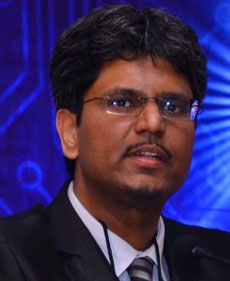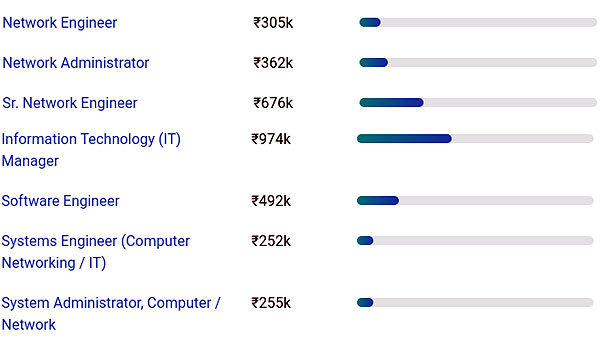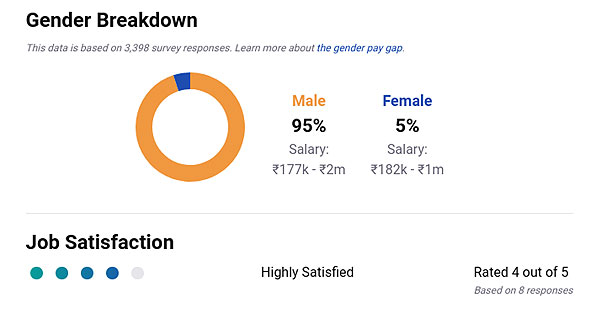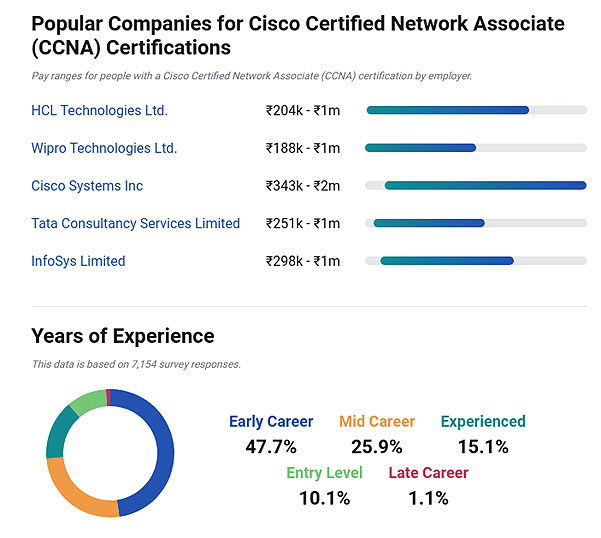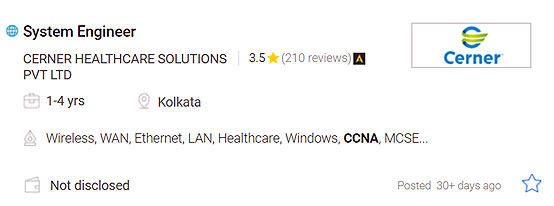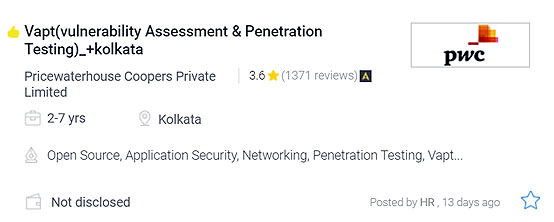CCNA Essentials
CCNA or Cisco Certified Network Associate is an Information Technology certification from CISCO, the American multinational and leader in IT, networking and cyber security solutions. CCNA certification is an associate level Cisco Career Certification.
The content of the exams is propriety.
The CCNA certification is valid for a period of 3 years. Renewal of the certification requires the present holders to register and pass the same or higher level Cisco re certification exam every 3 years.
The topics include connecting to a WAN, implementing network security, network types, network media, routing and switching fundamentals, the TCP/IP and OSI models, IP addressing, WAN technologies, operating and configuring IOS devices, extending switched networks with VLANs, determining IP routes, managing IP traffic with access lists, and establishing point-to-point connections.
Ethical Hacking
Ethical Hacking is also called Penetration Testing. It is an act of intruding/ penetrating into the system or network to discover threats and vulnerabilities which a hacker may find and exploit leading to loss of data, money etc. The purpose of ethical hacking is to tighten the security in the system by solving the vulnerabilities found. Ethical hacker’s modus operandi is the same as the criminal hackers but with the permission of the authorities.
Why learn CCNA Essentials?
Imparts in depth knowledge of
Networking.
Provides essential
Networking Knowledge
for
Ethical Hacking.
Why learn Ethical Hacking?
Regulatory compliance in terms of
Corporate Data Breaches
Professional
Development
Duration
80 hours - 2 classes per week
Eligibility
- 10+2 along with a basic aptitude and understanding of computer hardware knowledge.
- Basic Knowledge of Database, Server-side Programming (PHP or JSP or ASP.net) and Basic knowledge of Networking.
- If you do not have the above knowledge, please complete our "INDUSTRY READY" Course to be eligible.
Course Fees
Class Room Training
Rs.27,000/-
Inclusive of all taxes
Online Training
Rs.37,000/-
Rs.27,000/-
Inclusive of all taxes
What You Will Get?
80 Hours
in-depth training by Cisco Certified trainer and the best cyber security experts
Study Materials
CCNA Essentials + Ethical Hacking Combo
Certificate of Completion after examination and alumni status
Course Details - CCNA Essentials
- Essential to understand ethical hacking
- Prerequisite for CEH
- What is Networking? (Day 1)
- What is Internet? (Day 1)
- LAN, MAN, WAN, Topology (Day 1)
- Bits,Bytes and Octets (Day 1)
- What is Packet Tracer? (Day 1)
- Packet Tracer Installation (Day 1)
- What is OSI Layer (Day 2)
- Explain 7 layers (Day 2)
- Brief explaination for TCP Header (Day 2)
- Brief explaination for 3 way Handshake (Day 2)
- Comparison between OSI and TCP/IP Model (Day 2)
- Introduction to IP and MAC Address (Day 3)
- Use of IP and MAC Address (Day 3)
- What is OUI and DI? (Day 3)
- IANA, ICANN (Day 3)
- IPv4(Classful Addressing) (Day 3)
- Class A,B,C,D,E (Day 3)
- Public IP Private IP (Day 3)
- Loopback Address and APIPA (Day 3)
- Default Subnet Mask (Day 3)
- What is Subnetting? (Day 4)
- What is FLSM and VLSM? (Day 4)
- What is Subnet Mask? (Day 4)
- What is CIDR? (Day 4)
- Calculate FLSM for Class C Address (Day 4)
- Calculate VLSM for 4-6 Network Requirement with variable Host (Day 4)
- How to use Packet Tracer? (Day 5)
- Network setup using 2 pc and switch (Day 5)
- Router Components and Different Modes (also talk about router memory and how router saves configurations) (Day 5)
- Router Configuration (including Router password set and bypass) (Day 5)
- Network setup using 2 pc, switch and router (Day 5)
- DHCP Configuration using 4pcs(Classful & Classless) (Day 5)
- What is Telnet, ssh, ftp/tftp (Day 5)
- Configure SSH with security in Router (Day 5)
- What is Switching? (Explain ARP as well) (Day 6)
- What is VLAN? (Day 6)
- Different Modes(Access, Dynamic and Trunk) (Day 6)
- Configure VLAN (2-3 VLANS) (Day 6)
- Configure Intervlan Routing(Using Router with 2 interfaces, Router on Stick) (Day 6)
- What is VTP? (Day 7)
- Configure VTP(Server, Client, Transparent Mode) with 4 Switches (Day 7)
- What is Port Security? (Day 8)
- Configure Port Security(Restrict, Protect, Shutdown Mode)(Sticky,Dynamic MAC Address, Maximum Address) (Day 8)
- What is DHCP Snooping? (Day 8)
- Configure DHCP Snooping with 2 Servers(DHCP Configured inside) and 4 PCs (Day 8)
- What is Routing? (also discuss CDP, LLDP) (Day 10)
- What is IGP and EGP? (Day 10)
- Explain Different Vectors and Metrics (Day 10)
- Different protocols under IGP and EGP (Day 10)
- What is AS number and AD value? (Day 10)
- STATIC routing, Default Routing (Day 10)
- Dynamic Routing (Intro) (Day 10)
- Configure and verify single area and Multi area OSPFv2 (Day 11)
- Neighbor adjacencies (Day 11)
- Point to point (Day 11)
- DR/BDR selection (Explaination) (Day 11)
- Router ID (Day 11)
- What is and use of ACL? (Day 12)
- What is Standard and Extended ACL? (Day 12)
- Standard(Name,Number) ACL Configuration with 2 Routers blocking/allowing a network/host for hosts/network (Day 12)
- Extended(Name,Number) ACL Configuration with 2 Routers blocking/allowing a network/hosts for ICMP, HTTP, HTTPS, FTP, TELNET (Day 12)
- What is NAT? Different Types of NAT (Day 13)
- Configure Static NAT (Only Inside Rule) with two router (Day 13)
- Configure Dynamic NAT (Only Inside Rule) with two router using Pool and Interface (Day 13)
- What is PAT? (Day 13)
- Configure PAT (Only Inside Rule) with two router using Pool and Interface (Day 13)
- WLAN 4 way handshake (Day 14)
- Describe wireless security protocol (WPA,WPA2, WPA3) (Day 14)
- Configure and verify WLAN within the GUI using WPA2 PSK (Day 14)
- Explain Different WAN Technologies(Leased Line, Circuit Switching, Packet Swtching) (Day 16)
- What is Point to Point and Multiaccess Link? (Day 16)
- Explain and Configure different Point to Point Link encapsulation technology(HDLC, PPP --> PAP, CHAP) (Day 16)
- Why IPv6? (Day 17)
- How to write IPv6 Address? (Day 17)
- Different Types of IPv6 Address(Unicast, Multicast, Anycast) (Day 17)
- Different Types of Unicast Address(Global Unicast, Unique local, link local) (Day 17)
- Configure and Verify IP address on Router with 2PCs (Day 17)
- Configure and Verify Static Autoconfig Address (Day 17)
- Configure and Verify Static Routing with 2 Routers (Day 17)
- Define ICMP, DNS (Day 18)
- Explain AAA and the working (Day 18)
- Discuss the differences between TACACS+ and RADIUS (Day 18)
- What is SNMP? Different SNMP Version (Day 19)
- What is MIB,OID? What is SNMP Agent and Manager? (Day 19)
- Different SNMP Queries (Day 19)
- What is DMZ? Why is used? (Day 19)
- Discuss How DMZ are formed? (Day 19)
- Configure SNMP in Packetracer (Day 19)
- What is Proxy? Why it is used? (Day 20)
- What is VPN? (Day 20)
- Different Types of VPN(Site-to-Site, Remote-access) (Day 20)
- Different VPN Technologies(GRE, DMVPN, IPSEC) (Day 20)
- Configure GRE in Packet tracer (Day 20)
Course Details - Ethical Hacking
- What is Ethical Hacking (Day 1)
- What are the different types of hackers (Day 1)
- Five phases of hacking (Day 1)
- Scope of Ethical Hacking (Day 1)
- Passive Information Gathering (Day 2)
- Active Information Gathering (Day 2)
- Foot-Printing (Day 2)
- OSINT (Day 2)
- Port Scanning (Day 3)
- Network Sweeping (Day 3)
- Vulnerability Scanning (Day 3)
- Service Version Detection (Day 3)
- OS Fingerprinting (Day 3)
- Introduction to Metasploit Framework (Day 4)
- Introduction to Exploits & Payloads (Day 4)
- Type of Connections (Day 4)
- Exploit MS17-010 Vulnerability (Day 4)
- Introduction to Privilege Escalation (Day 5)
- Types of Privilege Escalation (Day 5)
- Bypassuac and getsystem (Day 5)
- Android Hacking (Day 6)
- Software based vulnerabilities (Day 6)
- Introduction to Active Directory Components (Day 7)
- LDAP in Active Directory (Day 7)
- Active Directory Functionality (Day 7)
- Service Principal Name (SPN) (Day 7)
- Kerberos Basics and Overview (Day 8)
- Components of Kerberos (KDC, Ticket Granting Ticket, etc.) (Day 8)
- Kerberos Authentication Process (Day 8)
- Kerberos Tickets and Encryption (Day 8)
- Introduction to Kerberos Attacks (Day 8)
- Introduction to Malware (Day 9)
- Types of Malwares (Viruses, Worms, Trojans, etc.) (Day 9)
- Malware Analysis Techniques (Day 9)
- Common Malware Distribution Methods (Day 9)
- Malware Detection and Prevention (Day 9)
- Introduction to Network Sniffing (Day 10)
- Passive vs. Active Sniffing (Day 10)
- Common Network Sniffing Tools (Day 10)
- Man-in-the-Middle (MITM) Attacks and Techniques (Day 10)
- Introduction to Cryptography (Day 11)
- Symmetric vs. Asymmetric Encryption (Day 11)
- Common Cryptographic Algorithms (e.g., AES, RSA) (Day 11)
- Steganography Techniques and Applications (Day 11)
- Introduction to Wireless Networks (Day 12)
- Types of Wireless Security Protocols (e.g., WEP, WPA, WPA2) (Day 12)
- Wireless Network Scanning and Enumeration (Day 12)
- Exploiting Wireless Vulnerabilities (Day 12)
- Introduction to Website Attacks (Day 13)
- How Website Attacks Work (Day 13)
- Types of Vulnerabilities Exploited (Day 13)
- Enumeration Techniques (Day 13)
- Introduction to Cross-Site Scripting (XSS) (Day 14)
- Understanding How XSS Works (Day 14)
- Types of XSS Attacks (Reflected XSS, Stored XSS, DOM-based XSS) (Day 14)
- Techniques for Detecting and Exploiting XSS Vulnerabilities (Day 14)
- Introduction to SQL Injection (SQLi) (Day 15)
- Mechanism of SQL Injection (Day 15)
- Common Types of SQL Injection Attacks (Union-Based, Blind SQLi, Error-Based) (Day 15)
- Techniques for Exploiting SQL Injection Vulnerabilities (Day 15)
- Introduction to Cross-Site Request Forgery (CSRF) (Day 16)
- How CSRF Attacks Work (Day 16)
- Examples of CSRF Exploitation (Day 16)
- Prevention and Mitigation Strategies (Day 16)
- Understanding Cookie Stealing and Session Hijacking (Day 17)
- Techniques for Cookie Stealing and Session Hijacking (Day 17)
- Data Tampering Attacks on Websites (Day 17)
- Phishing Attacks: Methods and Impacts (Day 17)
- File Upload Vulnerabilities: Risks and Exploitation (Day 17)
- Introduction to IoT Security (Day 18)
- IoT Device Identification and Enumeration (Day 18)
- Exploiting IoT Communication Protocols (Day 18)
- Webcam Attacks on IoT Devices (Day 18)
- Introduction to DDoS Attacks (Day 19)
- Types of DDoS Attacks (Day 19)
- DDoS Attack Techniques (Day 19)
- Cloud Security Fundamentals (Day 19)
- Introduction to IDS/IPS (Day 20)
- Types of IDS (Network-based, Host-based) (Day 20)
- Types of IPS (Network-based, Host-based) (Day 20)
- Honeypots (Day 20)
Hacking Tutorials
Read All Tutorials »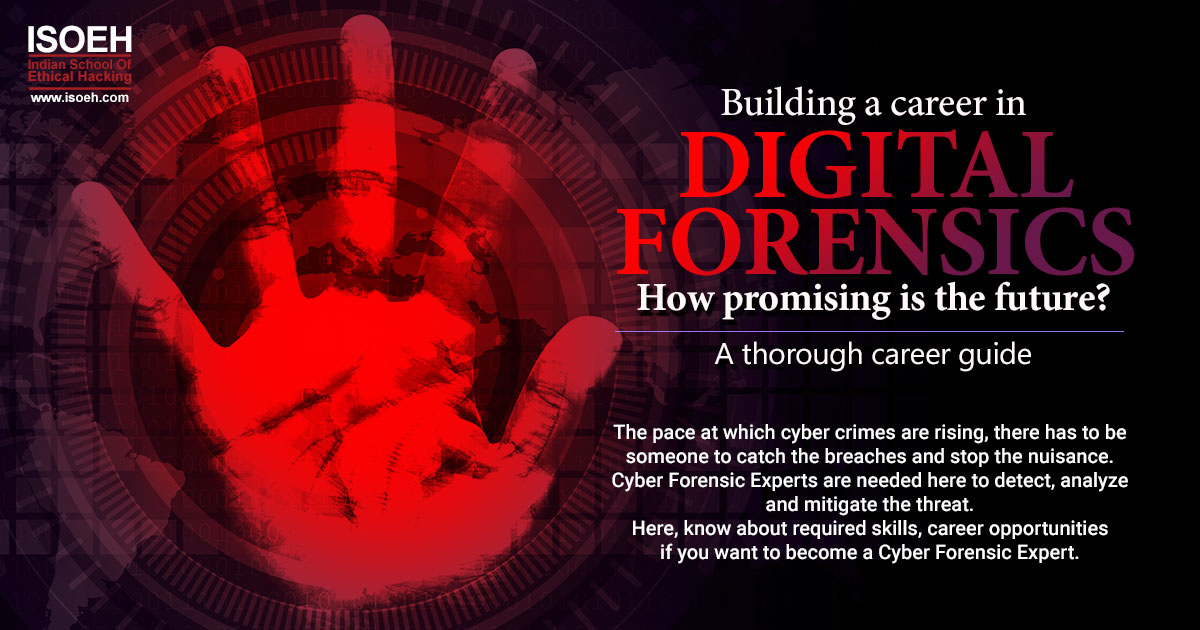
Building a career in Digital Forensic - How promising is the future? A thorough career guide
Read Details »Hacking Videos
Explore All Videos »How to Hiding Your Secret File using Steganography?
View On Youtube »Enroll Now
Fields marked with * are mandatory.
Ratings & Reviews
Job Prospects & Job Sources
CCNA Jobs
In order to maintain ultimate cyber security for corporate networking component is the most important aspect of IT infrastructure. Thus the demand for trained CCNA practitioners is soaring highest in the market for IT jobs.
One of those industrial sectors where CCNA is the most sought after IT security service is the Medical. That is because it is important to secure the patient report and associated medical details from being seized by hackers. Cyber Security being a major threat in fields of human activities the demand for CCNA certified security professionals is the highest. However prospects of a CCNA professional depends mainly on two factors namely work experience and job title.
The various titles that a CCNA processional holds are as follows:
| Network Engineer | Senior Network Engineer | Network Administrator |
| IT Manager | Systems Administrator | |
| Mobile Lead Software Engineer | Mobile Developer | IT Director |
| System Engineer |
Out of all the varied titles of CCNA the position which commands the highest financial compensation is the managerial one which CCNA is a confirmed catalyst to reach.
Two important specializations of CCNA is ‘routing’ and ‘switching’. Job opportunities for both are increasing manifold owing to growing network and infrastructural complexities which demand trained individuals who can maintain complicated and critical hardware required to support the same. But these two specializations are at present the most in demand and financially alluring areas of CCNA.
Here is a pictorial representation of a CCNA career in India.
Ethical Hacking Jobs
Internet security and networking are the two sunshine industries where ethical hackers are employed. They can join government and private organizations as cyber-security experts. IT firms are the real recruiters of ethical hackers additionally needed by financial service providers, airlines, retail chains and hotels also. Government agencies such as various wings of the military and law enforcement, defence organisations, forensic laboratories, detective companies and investigative services also have interesting careers for ethical hackers. Some skilled hackers work for investigative agencies like the Central Bureau of Investigation, the National Security Agency and the Federal Bureau of Information. Some large organizations employ security testers and others use contractors to audit their systems.
A fresher may work as an intern for some time before finally starting job with 2.5 lakh per annum. With one year of experience, one can expect up to 4.5 lakh per annum. Those with work experience five years or more can rake in anything between 10-12 lakh per annum.
FAQs
The topics include connecting to a WAN, implementing network security, network types, network media, routing and switching fundamentals, the TCP/IP and OSI models, IP addressing, WAN technologies, operating and configuring IOS devices, extending switched networks with VLANs, determining IP routes, managing IP traffic with access lists, and establishing point-to-point connections.
The course lasts for 40 hours with 2 classes per week.
The course is primarily based on practical sessions with an apt degree of theoretical classes.
10+2 along with a basic aptitude and understanding of computer hardware knowledge.
In order to maintain ultimate cyber security for corporate networking component is the most important aspect of IT infrastructure. Thus the demand for trained CCNA practitioners is soaring highest in the market for IT jobs for data security. Hence plush security jobs in IT departments of corporate houses are the alluring future of CCNA aspirants.
You can upgrade yourself in CISCO approved security skill development courses like CCNP, CCIE etc.
- Introduction to Ethical Hacking
- Legality and Ethics
- Networking & Basics
- Foot Printing
- Google Hacking
- Scanning
- Enumeration
- System Hacking
- Windows Hacking
- Trojans & Backdoors
- Virus & Worms
- Sniffers
- Social Engineering
- Proxy Server & Packet Filtering
- Denial of Service Attack
- Phishing
- Session Hijacking
- Penetration Testing
- Vulnerability Assessment
- Linux Hacking
- Physical Security
- Hacking Web servers
- Web Application Vulnerabilities
- Web Based password Cracking Techniques
- SQL Injection Vulnerabilities
- Cryptography
- Wireless Network Hacking and Countermeasures
- Evading IDS, Firewalls and Detecting Honey Pots
- Buffer Overflows
- Reverse Engineering
- Hacking Database Servers
- Steganography
- Spying Technologies
- Hacking Routers and Firewalls
- Computer Forensics and Incident Handling
- Botnets
- Hacking emails
- Privacy on the Internet
- Creating Security Policies
- Exploit Writing
- Patch Management
- Covering Tracks
The duration of the course is 40 hours at 2 classes per week.
The course is administered in theory as well as practice.
The pre requisites of the course are Basic knowledge of Database, Server side Programming (PHP or JSP or ASP.net) and basic knowledge of Networking.
The top organizations like such as Infosys, Wipro, TCS, Tech Mahindra, IBM etc. are seeking good ethical hackers. The profiles that are on offer include Security Executive, Web Security Manager/Administrator, Network Security Administrator, Network Security Systems Manager and much more.
The courses are NPT, WAPT, AAPT, IOS Application Penetration Testing etc which can be followed after this course.
Member of:






